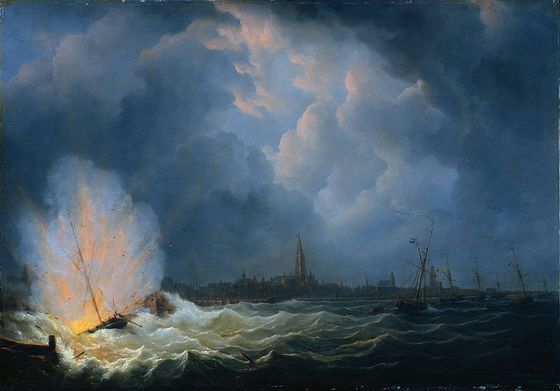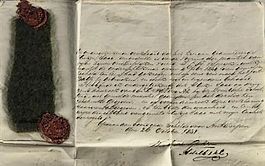We know Cornelis Vlieland went missing in 1796 .His daughter needed his consent on her wedding and had to certify that he was missing by the statement of several persons that knew her father well.
We know a man named Kees Vrijland was a prisoner of war at that time in Chatham.
You may think the names are not the same ,but in Holland Kees and Cornelis are the same .
Sometimes the name Cornelis is used in official document and Kees is the name used everyday.
The name Vlieland was pronounced and written down by a clerck ,who wrote it down as it was pronounced. So this could be our Cornelis . The next entry as a prisoner of war is Arry Vrijland .
Same story .Arrie must be Arie Vrijland .
First name(s):Kees
Last name:Vryland
Year:1797
Service number:-
Rank:-
Ship name:-
Prison camp or ship:Chatham
Country of imprisonment:
Conflict:Napoleonic Wars
Archive:The National Archives
Archive reference:ADM 103/483
Document details:Register of Dutch POWs 1796
Record set:Prisoners of War 1715-1945
Category:Military, armed forces & conflict
Subcategory:Regimental & service records
Collections fromGreat Britain
So now we know they were there ,but why are they prisoner of war in the Napoleontic war , why is never heard of them.Most likely ,they were taking prize ,but from what ship.
From Ary we find in the archives
First name(s) Avy Cornelius
Last name Vrieland
Year 1798
Death year 1798
Service number -
Rank -
Ship name -
Prison camp or ship Sandwich Prisr Ship, Chatham
Country of imprisonment prison ship
Conflict Napoleonic Wars
Archive The National Archives
Archive reference ADM 103/405
Document details Register of Dutch POWs, Sandwich (ship), 1797-1801
Record set Prisoners of War 1715-1945
Category Military, armed forces & conflict
Subcategory Regimental & service records
So he died in hospital but so far we did not find Cornelis
They were not the only prisoners of war.
Between 1793 and 1815 approximately one-quarter of a million prisoners of war were held in Britain.
At Chatham between 1803 and 1814 there were approximately 90,000;at Plymouth between 1793 and 1814, about 175,000; and at Portsmouth for the same period, approximately 360,000. At any one time there were thousands of prisoners confined in these areas and many more at other ports. Yarmouth held approximately 38,000, and Bristol and Liverpool about 40,000 each
Systems for the humane treatment and exchange of prisoners had evolved during earlier eighteenth-century wars.
box made by prisoners of war.Maybe the houses are a view on Chatham.















